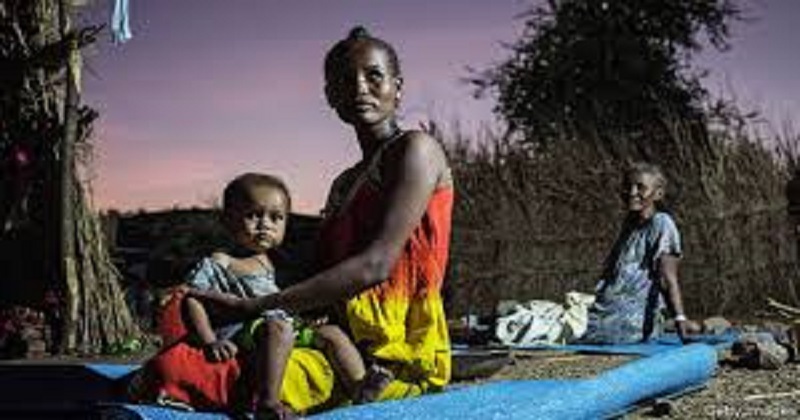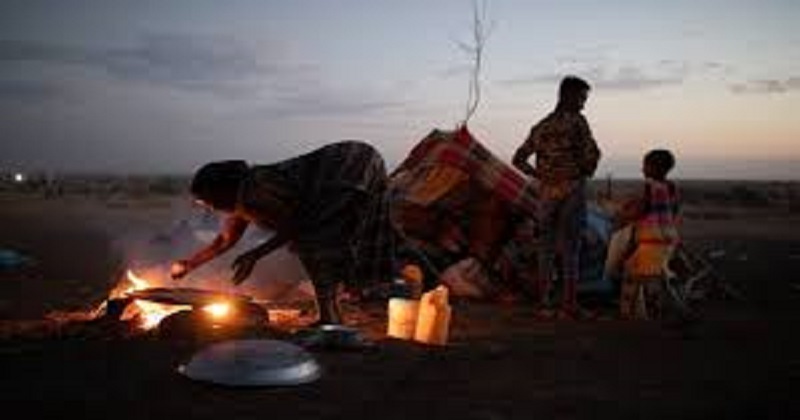
In Ethiopia’s northern region of Tigray, Eritrean soldiers and Tigrayan militias raped, detained, and killed Eritrean refugees, an international rights group said on Thursday. Human Rights Watch documents attacked on two camps in Tigray, where local forces have been fighting Ethiopia’s government and their Eritrean allies since November in a conflict that had rocked the Horn of Africa region. Eritrean refugees are scattered throughout Tigray, a mountainous and poor province with a population of about 5 million.
The Tigrayans distrusted them because they were the same nationality as occupying Eritrean soldiers, and the Eritreans because the refugees were suspected of betraying their homeland. The killings, rapes, and looting of Eritrean refugees in Tigray are clear war crimes, said Laetitia Bader, director of Human Rights Watch (HRW) who spoke to 28 refugees and reviewed satellite imagery in her research. Eritrea’s minister of information did not immediately return calls seeking comment, but the country has previously denied atrocities and said its forces do not target civilians. Tigray People’s Liberation Front spokesman said previously uniformed Tigrayan forces were deployed in that area, and that it was possible that local militias committed abuses.

Ethiopia hosted around 150,000 Eritrean refugees fleeing poverty and authoritarian rule prior to the Tigray conflict. Shimelba and Hitsats, two camps destroyed during the fighting, were a key focus of the report. According to UNHCR figures, 7,643 out of 20,000 refugees living in Hitsats and Shimelba camps are still unaccounted for. The United Nations refugee agency, UNHCR, said it was ‘appalled’ at the reports of ‘immense suffering’ in refugee camps, which it was unable to access between November and March.
People were killed in every house
Eritrean forces occupied and killed civilians in the northern town of Hitsats, HRW said. They also pillaged the refugee camp and killed the residents. Refugees helped direct looters, one resident told HRW. One resident told HRW that ‘people were killed in every house’. HRW reported that four days later, Tigrayan fighters attacked an area near Hitsats camps Ethiopian Orthodox church, killing nine refugees and injuring 17 others.

Human Rights Watch reported one refugee said, ‘When my husband came back to help me enter the church, they shot him. My husband had our 4-year-old on his back and our 6-year-old in his arms. In clashes that day, HRW reported that two dozen residents of Hitsats town died’. HRW said in its report that it was unable to determine whether Tigray’s formal forces were directly in charge of local Tigray militias operating around Hitsats. A few days later, Eritrean soldiers detained two dozen refugees, who were never seen again, according to HRW. They also returned the 17 injured refugees to Eritrea. Early in December, Eritrean forces departed Hitsats camp. On Dec. 5, Ethiopian forces returned, sending refugees fleeing under attack.
Several refugees reported being shot at and assaulted with grenades at Zelasle and Ziban Gedena, northwest of Hitsats. Refugees reported to Human Rights Watch that tigrayan forces marched fleeing refugees back to Hitsats, shooting some stragglers. Additionally, some women claim they were raped as they fled by Tigrayan fighters. According to one 27-year-old woman, she and her 17-year-old sister were raped by Tigrayan fighters. In January 2004, the tigrayan troops withdrew from Hitsats, Human Rights Watch reported. Following the return of the Eritrean forces, the U.N. confirmed that the camp was destroyed. According to HRW, Eritrean forces killed at least one refugee in Shimelba and raped four others, along with killing local residents.
Read more: ‘Nokku Koolie’ is bringing bad name to Kerala despite ban
Refugees were forced to return to Eritrea after violence and a severe food shortage. Others fled south to Adi Harush and Mai Aini camps. In June, Tigrayan forces took control of those camps, and refugees have reported killings and looting. Over 20,000 Eritrean refugees are living in Mai Aini and Adi Harush camps in southern Tigray, and UNHCR said there is a severe food and water shortage as well as a lack of healthcare.

Post Your Comments